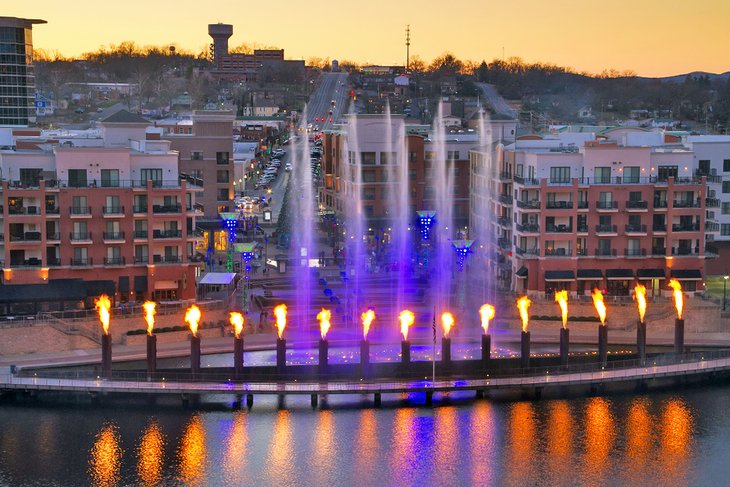
From Telecom Titan to Governance Guru: The Enduring Legacy of Mo Ibrahim
In a continent often stereotyped by its challenges, Mo Ibrahim stands as a towering figure, a testament to Africa’s potential and a relentless champion for its progress. A Sudanese-British entrepreneur, philanthropist, and visionary, Ibrahim’s journey is one of remarkable success, transitioning from pioneering the mobile telecommunications revolution across Africa to becoming one of the world’s most influential advocates for good governance and ethical leadership. His story is not just about accumulating wealth, but about leveraging it to fundamentally reshape perceptions and drive tangible change, armed with data, unwavering optimism, and a healthy dose of direct, often provocative, candour.
Born in Sudan in 1946, Mo Ibrahim’s early life was marked by a commitment to education and a burgeoning interest in technology. He earned a Bachelor of Engineering from Alexandria University in Egypt, followed by a Master of Science from the University of Birmingham and a PhD in Mobile Communications from the University of Bradford, both in the United Kingdom. This rigorous academic foundation in a nascent field would prove pivotal. Unlike many who saw Africa solely through the lens of aid and underdevelopment, Ibrahim saw immense untapped potential, particularly in bridging the continent’s vast distances with cutting-edge communication technology.
His entrepreneurial breakthrough came with the founding of Celtel International in 1998. At a time when multinational giants were hesitant to invest in what they perceived as high-risk African markets, Ibrahim had a different vision. He understood the unique dynamics of the continent – the need for affordable, accessible communication, and the power it held to connect communities, facilitate trade, and empower individuals. Celtel was not merely a business; it was a catalyst, connecting millions of Africans to the world for the first time. It started in Uganda and quickly expanded across more than a dozen African countries, offering pre-paid services that were revolutionary for the time and perfectly suited to the economic realities of its customer base. By the time Celtel was sold to MTC of Kuwait (now Zain) in 2005 for $3.4 billion, it had become a continental success story, fundamentally altering the telecommunications landscape and demonstrating the viability of large-scale, high-impact investments in Africa.

The sale of Celtel made Ibrahim a billionaire, but unlike many who might retreat into a life of quiet luxury, he saw his newfound wealth as a profound responsibility and an unprecedented opportunity. He famously declared, "Africa is not poor, it is poorly managed." This sentiment became the bedrock of his next, even more ambitious, venture: the Mo Ibrahim Foundation. Established in 2006, the Foundation’s mission was clear – to put governance at the centre of Africa’s development agenda. Ibrahim recognized that while economic growth was vital, sustainable progress could only be built on a foundation of strong institutions, rule of law, transparency, and accountability. He believed that the continent’s future hinged on the quality of its leadership.
The flagship initiative of the Mo Ibrahim Foundation is the Ibrahim Prize for Achievement in African Leadership. This award, launched in 2007, is arguably the most significant and unique prize in the world, certainly in terms of its financial value and its specific focus. It is designed to recognize and celebrate democratically elected former African executive heads of state or government who, through their exemplary leadership, have brought peace, stability, and prosperity to their nations, and who have transferred power democratically. The prize offers a staggering $5 million paid over ten years, followed by $200,000 annually for life, plus an additional $200,000 per year for ten years for public interest activities. This immense sum is intended to allow former leaders to continue their good work in retirement, free from financial anxieties, and to serve as a powerful incentive for others to follow suit.
However, what makes the Ibrahim Prize truly remarkable, and at times controversial, is the stringency of its criteria and the integrity of its independent selection committee. In several years since its inception (2007, 2009, 2010, 2011, 2012, 2013, 2015, 2018, 2020, 2021, 2022, 2023), the prize has not been awarded, a stark and often uncomfortable testament to the scarcity of leaders who meet the Foundation’s exacting standards. This "no award" decision is not a failure of the prize, but rather a powerful, implicit critique of the state of leadership on the continent, sending an unequivocal message that good governance, democratic transition, and adherence to the rule of law are not optional extras but fundamental requirements for Africa’s progress. As Ibrahim himself has stated, "When we say there is no winner, it means we are still looking for good leaders."
Beyond the prize, the Mo Ibrahim Foundation also produces the Ibrahim Index of African Governance (IIAG), a robust, data-driven framework that provides an annual assessment of the quality of governance in 54 African countries. The IIAG is a critical tool, measuring governance performance across key categories such as Safety and Rule of Law, Participation and Human Rights, Sustainable Economic Opportunity, and Human Development. By collecting and analyzing a vast array of data from various sources, the IIAG provides an objective, evidence-based picture of how countries are performing, highlighting strengths, identifying weaknesses, and tracking progress over time. This index serves as a vital resource for African governments, civil society organizations, academics, and international partners, encouraging evidence-based policymaking and fostering greater accountability. It shifts the narrative from anecdotal observations to concrete metrics, allowing for informed debate and targeted interventions.
Ibrahim’s influence extends far beyond the mechanisms of his Foundation. He is a prominent voice on global platforms, frequently speaking out on issues ranging from climate change and migration to youth employment and the need for greater African representation in international institutions. He is known for his direct, no-nonsense style, unafraid to challenge both African leaders and Western policymakers. He has often criticised the West for its often-patronising approach to Africa, advocating instead for genuine partnerships based on mutual respect and shared interests. Simultaneously, he holds African leaders to account, demanding transparency, an end to corruption, and a commitment to democratic principles.
His optimism for Africa is infectious, but it is a pragmatic optimism, grounded in a clear-eyed understanding of the challenges. He firmly believes in the potential of Africa’s burgeoning youth population, seeing them as the engine of future growth and innovation. He frequently calls for greater investment in education, skills development, and job creation to harness this demographic dividend, warning that failure to do so could lead to instability. "Our young people are our biggest asset," he insists. "We must invest in them, give them opportunities, and listen to their voices."
Despite the undeniable impact of his work, Ibrahim is not without his critics. Some argue that the IIAG, while comprehensive, cannot fully capture the nuances of governance in diverse contexts. Others suggest that the "no award" years for the prize, while impactful, can also be disheartening. However, Ibrahim remains steadfast, viewing these as necessary discomforts in the pursuit of a higher goal. He understands that genuine change is a long, arduous process, and that challenging the status quo often involves confronting uncomfortable truths.
In essence, Mo Ibrahim’s legacy is multifaceted. He is the engineer who built a telecommunications empire, connecting a continent. He is the philanthropist who recognized that wealth carried a moral imperative, investing billions in a foundation dedicated to good governance. He is the visionary who understood that Africa’s destiny lay in its own hands, propelled by accountable leadership and robust institutions. Through the Ibrahim Prize, he has elevated the standards of leadership; through the IIAG, he has provided the data to hold leaders accountable; and through his outspoken advocacy, he has continually pushed for a more just, prosperous, and self-reliant Africa.

As Africa navigates the complexities of the 21st century, facing challenges like climate change, rapid urbanization, and persistent inequalities, the principles championed by Mo Ibrahim – transparency, accountability, and ethical leadership – remain more critical than ever. His journey from a humble background in Sudan to becoming a global force for change is not just an inspiring personal narrative; it is a blueprint for how one individual, driven by a profound commitment to their continent, can truly make a difference, proving that the greatest wealth lies not in what one accumulates, but in the enduring legacy of positive transformation.


